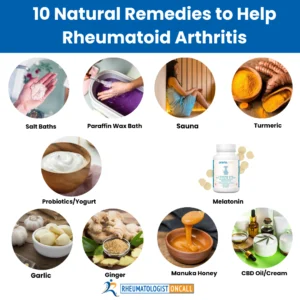SHARE
What is Gout, the Unseen Invader
Has a sudden, intense pain in your big toe or another joint ever startled you from your sleep? If you’ve experienced this agony, Gout might be the culprit. In this comprehensive guide, we’ll delve into what is Gout, a common form of arthritis that affects millions of people worldwide, and unravel its symptoms and management strategies Take Mr. Collin’s case, one of my patients. He urgently reached out one morning with a swollen right foot that was in such pain he couldn’t walk or tolerate the weight of a sheet. A party with alcohol and shellfish was all it took to trigger this distress. If you’ve faced a similar situation, you may find his story enlightening. Stay with us to find out what happened to Mr. Collin.Gout Deciphered: A Closer Look at the Condition
Gout is a prevalent form of inflammatory arthritis instigated by an accumulation of uric acid crystals in your joints. This condition tends to affect males earlier in life, but post-menopause, females also fall within its grasp. However, Gout is a rare occurrence in children. These uric crystals can provoke inflammation, redness, and pain under certain conditions. While Gout is often linked with the big toe, it doesn’t discriminate and can affect the hands, knees, ankles, and even the lower back, such as the sacroiliac joints. This unpredictable disease can affect different joints at different times, adding to its complexity and the need for a deeper understanding.The Five Warning Symptoms of Gout: A Detailed Analysis
1. Podagra: The Big Toe’s Agony
Podagra refers to Gout that primarily involves the big toe. Picture waking up to an inflamed toe, radiating pain, swelling, and a discomfort so intense that patients often liken it to the worst pain they’ve ever experienced, sometimes even surpassing childbirth! This symptom of gout, known as podagra, can last several days and often responds well to anti-inflammatory medications like naproxen and ibuprofen.2. Joint Involvement: Gout’s Extended Reach
The horrors of Gout aren’t confined to the big toe; it can venture out and affect the ankles, knees, elbows, wrists, and fingers. Gout can cause red, swollen, and painfully inflamed joints, leaving patients in tears from the severity of discomfort. It’s essential to recognize this as a sign of Gout and seek immediate medical attention.3. Tophi: The Silent Indicators of Advanced Gout
In advanced stages, Gout might give rise to tophi – small, white, and yellowish lumps caused by the accumulation of uric acid crystals. Though they’re painless, they pose a significant threat by causing joint damage and raising the risk of infections, particularly in commonly affected areas like the ears, elbows, and hands.4. Kidney Stones: The Unseen Consequences of Uric Acid
Kidney stones are another potential outcome of Gout. These painful stones are caused by uric acid crystal accumulation in the kidneys, leading to severe pain, nausea, and vomiting when they grow large enough. This symptom of gout underscores the importance of managing uric acid levels to prevent Gout.5. Kidney Disease: Gout’s Long-term Impact
Chronic urate nephropathy, a form of kidney disease, is triggered by uric acid deposits in the kidneys. These deposits lead to inflammation and can eventually result in long-term kidney damage. Notably, Gout often coexists with other health conditions such as obesity, high blood pressure, and diabetes, complicating the health scenario. Triggers and Risk Factors for Gout
While a genetic predisposition can increase the risk for developing Gout, certain lifestyle factors and medications also play a significant role. A diet rich in purines, such as those found in red meat and shellfish, alcohol consumption, and the use of certain medications, including diuretics and low-dose aspirin, can precipitate a Gout attack. Moreover, certain chemotherapy drugs can raise uric acid levels, putting patients at risk for Gout.
Triggers and Risk Factors for Gout
While a genetic predisposition can increase the risk for developing Gout, certain lifestyle factors and medications also play a significant role. A diet rich in purines, such as those found in red meat and shellfish, alcohol consumption, and the use of certain medications, including diuretics and low-dose aspirin, can precipitate a Gout attack. Moreover, certain chemotherapy drugs can raise uric acid levels, putting patients at risk for Gout.














